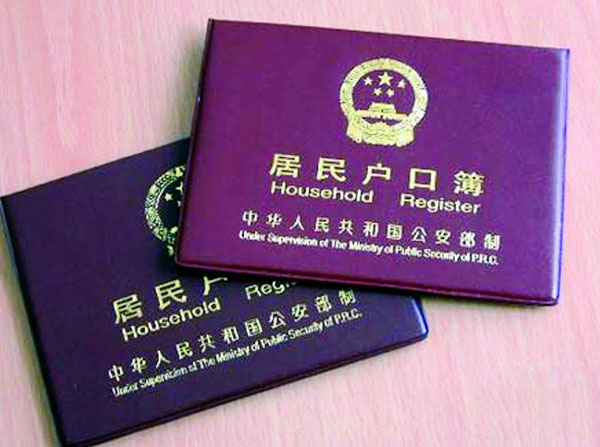(单词翻译:单击)
A total of 20 provinces and municipalities have issued detailed household registration policies for the people who have failed to register their household legally, according to a report by Chinanews.com.
据中新网的一项报告显示,我国已有20个省市针对未依法进行户口登记的"黑户"发布了户口登记政策细则。
The General Office of the State Council issued a document in January that ordered the removal of illegal restrictions to citizens' rights to a hukou or household registration.
今年1月,国务院办公厅发布的一份文件要求取消对公民户口登记权利的非法限制。
The State Council document urged every citizen to register in the permanent residence registration system according to the law.
国务院文件要求每一个公民在户籍制度中要依法登记。
Unregistered citizens include those who do not have a birth certificate, those born out of wedlock, orphans adopted outside the official system; and those who lost their hukou due to marriage traditions, being pronounced missing or dead, or previously holding invalid registration papers.
未登记的公民主要包括没有出生证明的、私生子、在官方系统外收养的孤儿,以及那些因婚姻传统失去户口的人,被宣告失踪或死亡,或先前持有无效登记文件的人。

Based on this document, the policies issued in the provinces divide unregistered citizens into more detailed categories and clarify the procedure required in each category to complete the registration.
各省纷纷根据该文件出台政策,对无户口人员进行进一步细分,并明确了每类无户口人员完成户口登记要办理的手续。
Authorities in Jilin have added a category for those released from prison or reeducated-through-labor.
吉林省有关部门增设了刑满释放、解除劳动教养的无户口人员类别。
While those in Anhui and Guangdong have added a category for vagrants and beggars, and in Gansu and Hebei, authorities have added a category for those who failed to register their household for historical reasons.
安徽省和广东省相关部门增加了流浪乞讨的无户口人员类别。甘肃省和河北省相关部门增设了因历史原因未进行户口登记的无户口人员类别。
According to the Ministry of Public Security, there are an estimated 13m unregistered citizens in China.
据公安部门表示,目前我国约有1300万无户口人员。
In China, citizens are issued a hukou based on their place of residence. Various social benefits such as medical insurance and access to basic education are based on hukou.
在中国,公民是根据自己的居所发放户口。而各种社会福利,如医疗保险和接受基础教育都是要基于户口的。


